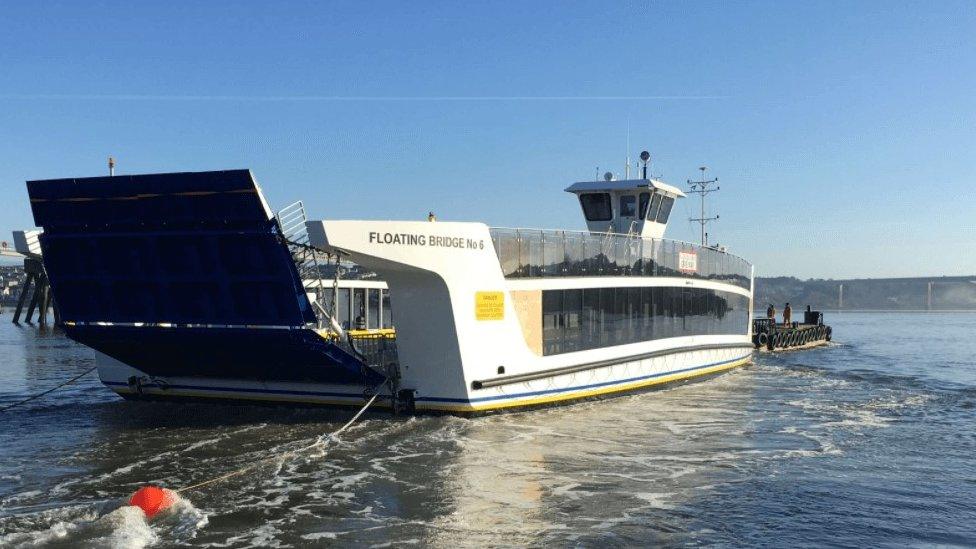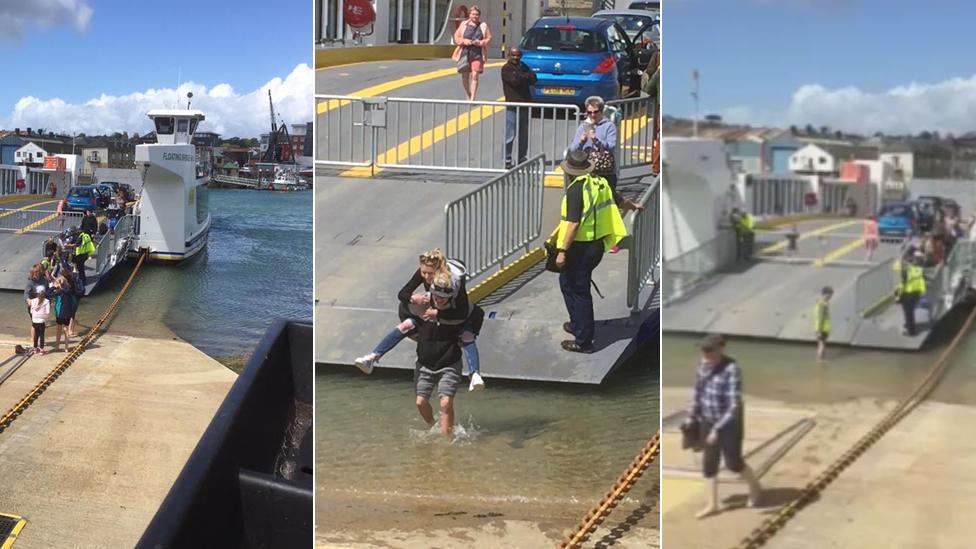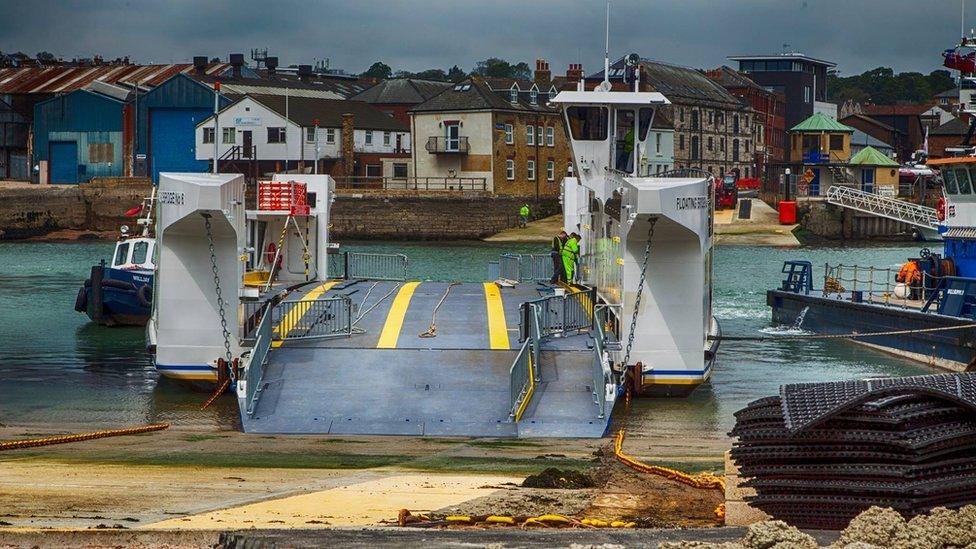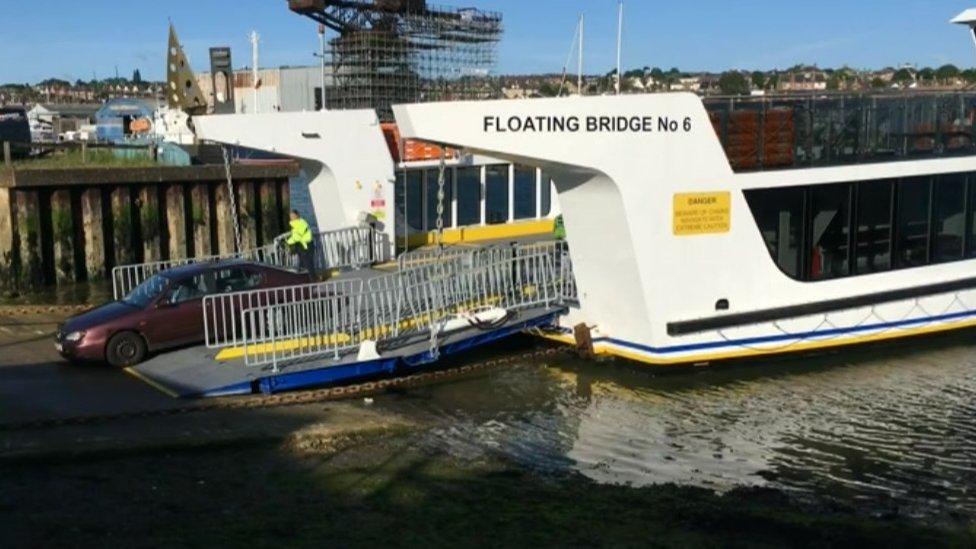Cowes 'floating bridge' businesses compensation call
- Published

The new £3.2m service resumed on 7 June following its suspension due to "training issues" by the Maritime Coastguard Agency
Shopkeepers near the Isle of Wight's troubled new "floating bridge" have asked councillors to consider compensating them for loss of business.
The call was made at a scrutiny meeting of the council to discuss the problems surrounding the new vessel.
Council leader Dave Stewart said the crossing at Cowes would be free until 2 July "in recognition of the problems" and to allow feedback.
Mr Stewart said the council had ordered a review of the project by auditors.
He said it had been a "frustrating and disappointing start" to the ferry.
Since launching late on 14 May the chain ferry has broken down, run aground and been suspended by the Maritime and Coastguard Agency due to "training issues".
Cars have also been damaged getting on and off.
During the meeting the council's chief executive, John Metcalfe also announced the decision to take the ferry out of service at low tide for the rest of June.
He said the chains were too loose, allowing the ferry to slip and get stuck at low tide.
Mr Metcalfe said work to clear silt to stop it grounding was planned to take place during extreme low tides on 26 June.

Floating bridge timeline:
13 May - vessel launched
14 May - broke down
15 May - service suspended by MCA
7 June - ran aground first time
9 June - ran aground for a second time
9 June - council said it had cleared "silt build up that caused the floating bridge to ground"
10 June - ran aground a third time
12 & 13 June - taken out of service twice each day at low tide

Shopkeeper Angie Booth, who owns Valu-4-U in East Cowes, said: "Whether I come out of this and survive I am not sure - other businesses too. We are bearing the brunt of the loss of almost six months of trade.
"Will you compensate local businesses, the same as for damaged cars?"
Transport councillor Ian Ward said compensation was up for discussion.
He added: "I don't think it's a disaster. It's a prototype. There are bound to be teething problems. There were electrical problems which the company has rectified."
He said the council authorised the manufacture of ramp extensions to resolve the problem of vehicles scraping the concrete.
He said groundings were an issue with seamanship, which had been resolved.

Passengers were helped from the stricken chain ferry when it broke down for the first time on its first weekend in service
- Published12 June 2017

- Published10 June 2017

- Published7 June 2017

- Published22 May 2017

- Published15 May 2017

- Published14 May 2017
